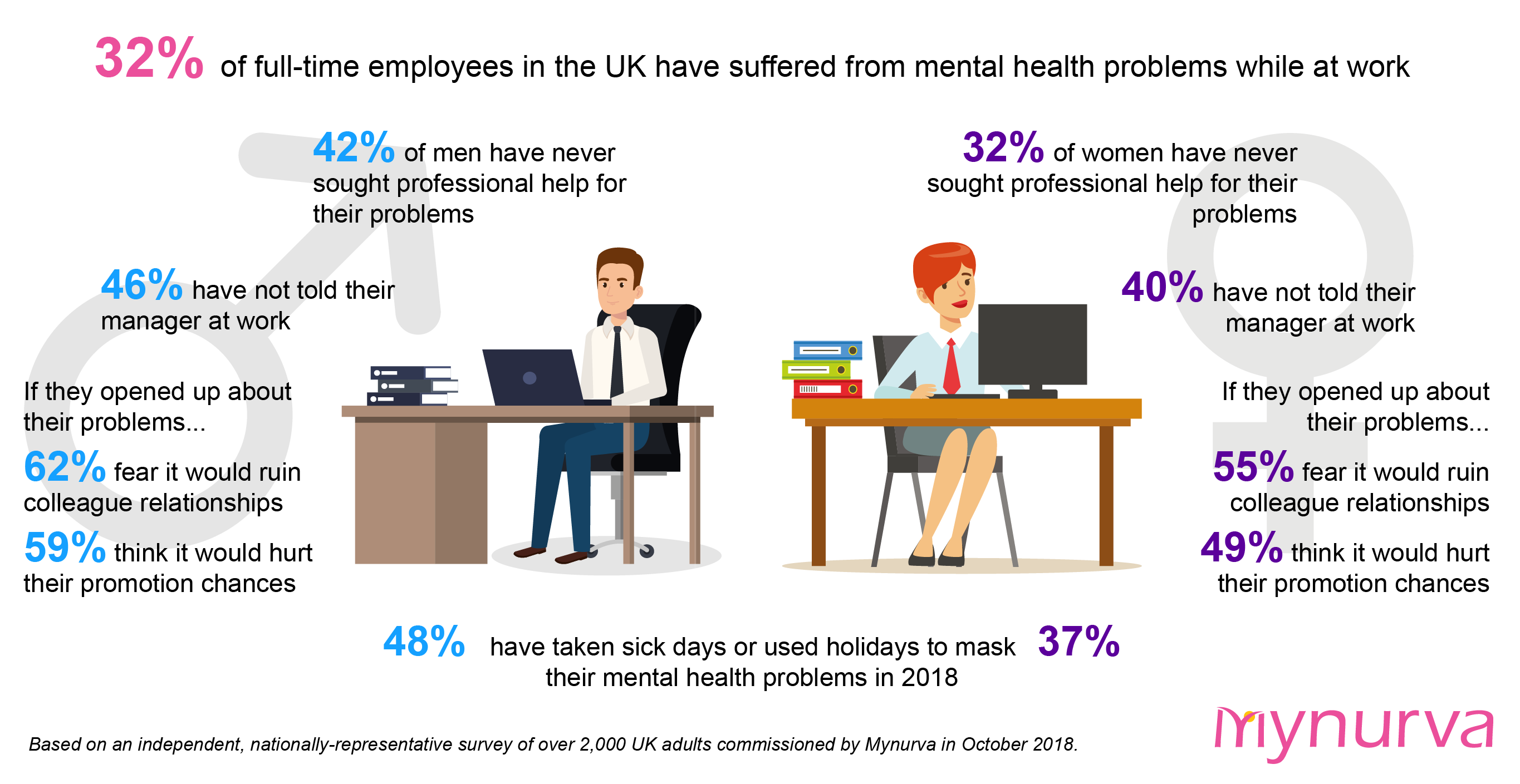Dr Zain Sikafi, CEO and co-founder, Mynurva, discusses how common mental-ill health at work is and how it can be appropriately managed in the workplace
Mental health has become an increasing significant topic of discussion over the past few months – and for good reason. The prevalence of mental ill-health across all groups within society is alarming, with new research demonstrating that there are particularly acute issues amongst men and those working in high-pressure jobs.
What do the statistics say?
Mynurva recently conducted a nationally representative survey among more than 2,000 UK adults in an attempt to uncover how many working professionals have suffered from mental health symptoms. What’s more, the study also delved into the challenges inhibiting full-time workers from seeking the help they need.
The research found that 32% of full-time employees suffer from mental health issues. This is an alarming statistic demonstrating just how common mental health problems are within the work environment. Men are also more likely to suffer in silence, with almost half (46%) choosing not to disclose their mental health issues to their manager, compared with 40% of females. And of those who suffer from poor mental health, 37% have never sought professional help for their symptoms.
Why employees don’t speak out
With a significant number of professional workers not seeking the help they need, Mynurva sought to understand why this was the case. We found that 55% of employees coping with mental ill-health fear that admitting their problems to a manager would hinder their chances of a promotion.
Meanwhile, 58% of people think that if their mental health problems became common knowledge in the office, it would negatively impact their relationships with colleagues. In order to hide their struggles, nearly half of male workers (48%) and 37% of female workers admitted that they have taken sick days or used their holiday allowance without revealing that mental health issues were the reason why.
Why we need change in workplace cultures
Considering the high prevalence of mental ill-health within the workplace, particularly amongst men, it’s clear that much more needs to be done to ensure employees can improve their wellbeing.
Embarrassment and fear are clearly considerable barriers, and while it’s great to see the subject of mental health being more openly discussed within society, the progress that is being made within working environments is frustratingly slow.
Evidently, concerns about confidentiality linger, while mental wellbeing schemes are failing to secure significant uptake. Thankfully, however, a number of alternative options exist for professionals that are hesitant about speaking out in the workplace. Services like Mynurva, for instance, offer full-time workers suffering with mental health problems flexible and discreet counselling sessions via live video, so employees can rest assured that professional support is accessible without unnecessary fears that colleagues will find out.
But of course, while such options are invaluable for those who need help, they are not a solution to unsupportive workplace cultures. A more proactive approach is needed within every workplace to create an environment where employees feel comfortable expressing their mental health concerns and are offered access to helpful solutions. The reality is that the number of professionals suffering in silence is dangerously high and this demands urgent attention.












